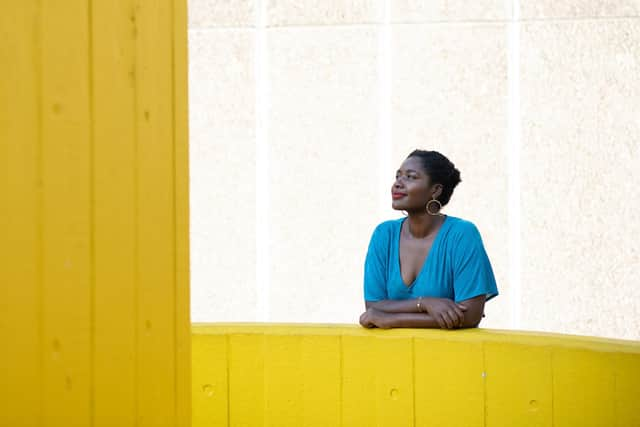Nardus Williams: 'Programme planning is a passion – and I have numerous ideas ready to go'
Worcester-born soprano Nardus Williams is a busy woman. She was the Countess in Mozart’s The Marriage of Figaro at Glyndebourne last year, and returns this summer in Donizetti’s L’elisir d’amore. Among a bulging schedule of opera and concerts, she’s just sung in an ingenious – and very well-received – modern-day staging of four Handel cantatas at the London Handel Festival.
And she’s also the driving force behind the Dunedin Consort’s concerts in Edinburgh and Glasgow next week, which revolve around those very same pieces: the short, punchy, fiercely emotional cantatas that Handel wrote as a young man. He’s a composer who means a lot to her.
Advertisement
Hide AdAdvertisement
Hide Ad“Handel has played a central role in my career,” Williams explains. “The first time I performed at the Proms it was Handel, my first opera was Handel, and before that, the first sonatas I learnt on recorder were by Handel. He writes with such a convincing connection between words and music, which allows for the incredible dramatic range in his vocal works.”


There’s no shortage of drama in the two cantatas Williams performs with the Dunedins. We might be more familiar with the older Handel of Messiah and other great oratorios, or even of the lavish operas he wrote to delight London audiences. But his cantatas are something else entirely. Handel wrote about 80 of them while living in Italy as a young man, where he’d made a musical pilgrimage from Germany to study with the greatest musicians of the day. “He wrote them in Rome during a period in which he was assimilating the ‘Italian style’, which he would later take to Britain and become associated with,” Williams explains.
Ironically, however, when Handel rocked up in Rome in 1707, he found opera banned by Papal decree – shamefully immoral and irreligious, apparently. Nonetheless, the young composer quickly found favour among the city’s great and the good – including plenty of clergy – and wrote these short, potent cantatas for their private entertainments. There might be a plot, a central character, and plenty of dramatic music, but if anyone was asking, they’re definitely not operas.
“They really are operas – in all but name,” Williams laughs. “But you’re singing the only character, and there’s no visual element in sets or costume. So the only vehicles for driving the drama are the music and text, and I love that. It means you’re forced to deliver the music with all the drama of a full production.”
It’s two of these not-opera mini-operas that Williams performs in her concerts with the Dunedin Consort. “Ero e Leandro is a setting of the Greek myth of Hero and Leander. It focuses on the moment of maximum dramatic impact – the death of Leander.” Williams’s second cantata takes a slightly more abstract perspective on the story of Daedalus and Icarus. “Tra le fiamme is a setting of a text musing on various metaphors of doomed flight,” Williams explains. It’s even been suggested that it was a veiled warning from its clerical commissioner that Handel shouldn’t get too comfortable in his growing fame and adulation, lest he crash and burn.
These all-Handel evenings – bringing in orchestral music and a couple of oratorio arias alongside the cantatas – are very much Williams’s own projects. “Most often an orchestra will approach a singer with a set programme, and you either accept or not. Other times, you might get some leeway. In this case, I was given carte blanche.” It’s unusual for an invited soloist to take that kind of role – but increasingly valued (just look at Finnish violin pioneer Pekka Kuusisto’s now annual takeover of the Scottish Chamber Orchestra) as ensembles look to tap into their collaborators’ insights and opinions.
“Programme planning is a passion – I have numerous ideas ready to go,” Williams says. “We use the term ‘artist’ for classical musicians, but sometimes there can be very little scope for the creativity and exploration we associate with art. And for the audience, listening to a musician performing music they care deeply about is obviously going to lead to a profounder experience.”
Advertisement
Hide AdAdvertisement
Hide AdNardus Williams sings Handel with the Dunedin Consort in Glasgow, 28 March, and Edinburgh, 29 March, followed by performances at London’s Wigmore Hall and Saffron Hall in Essex. www.dunedin-consort.org.uk